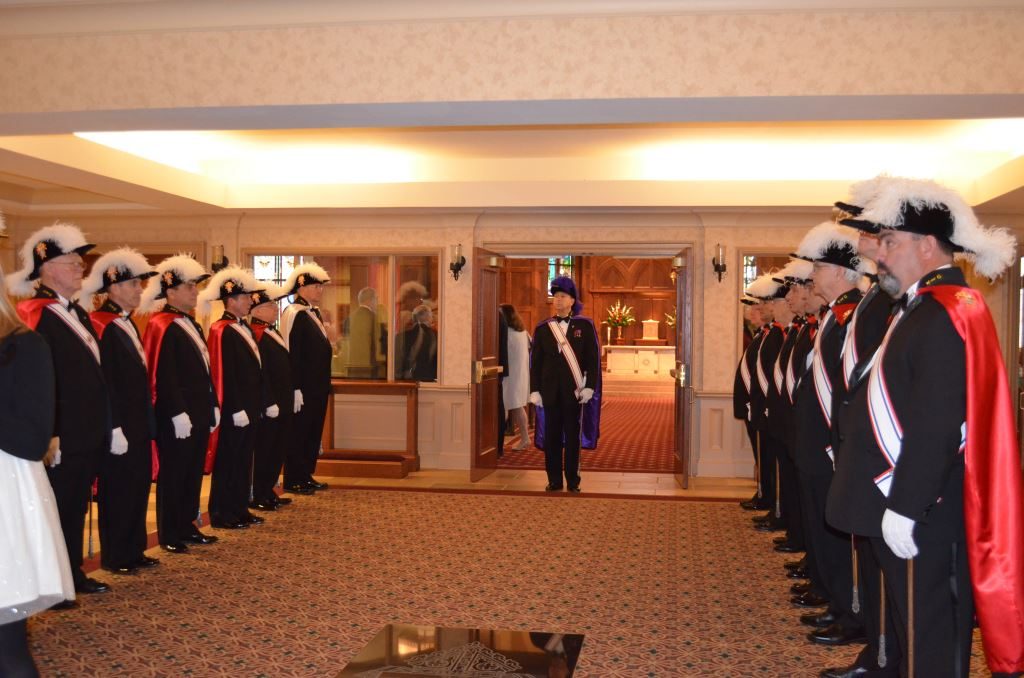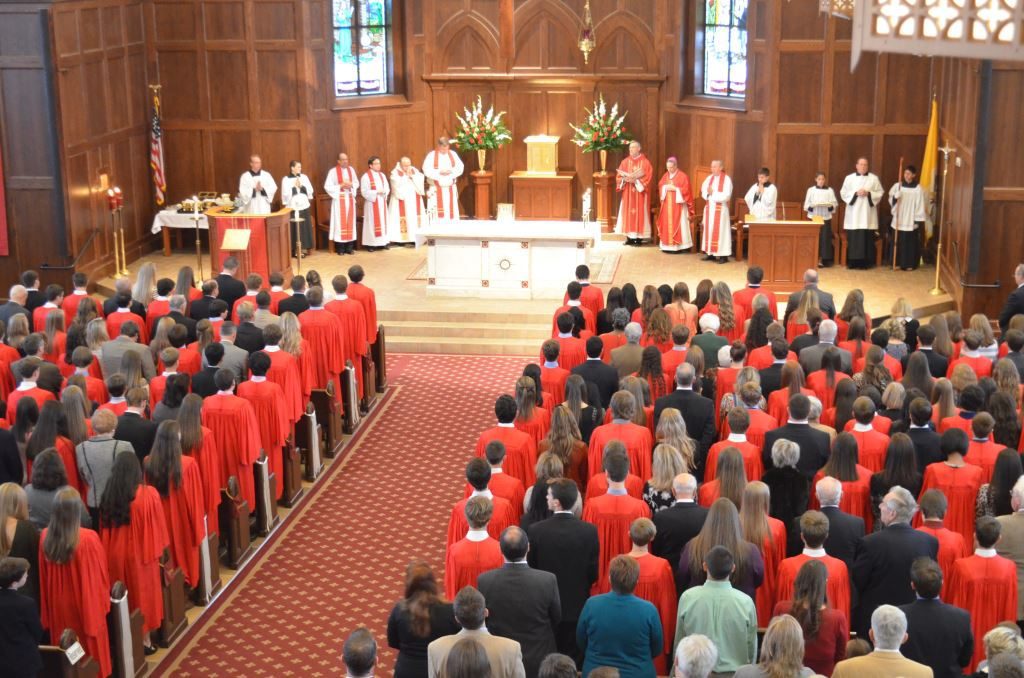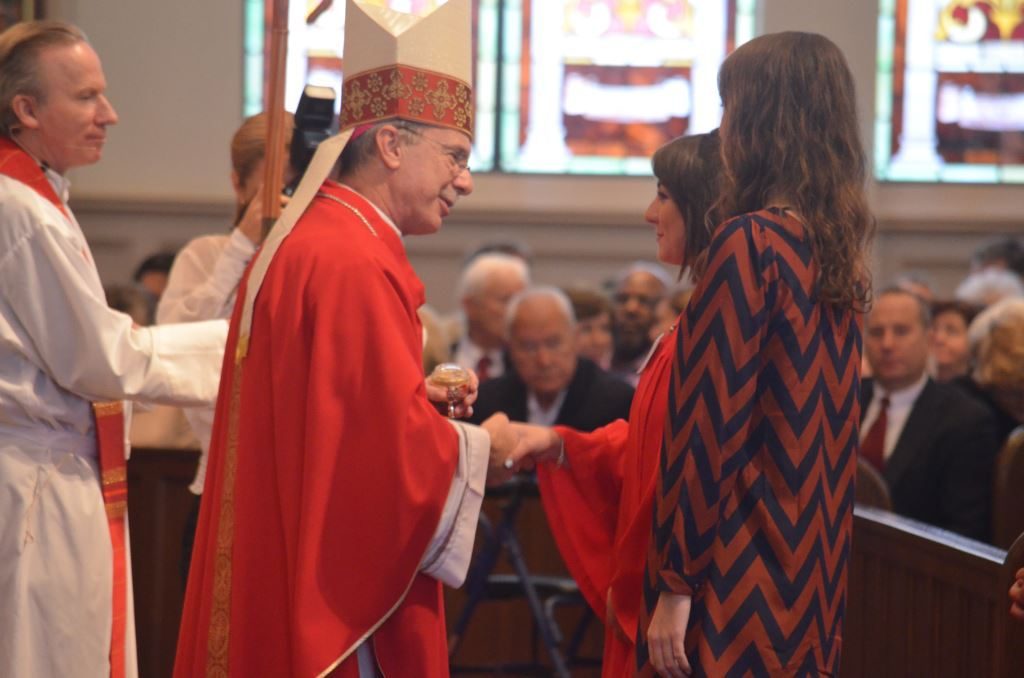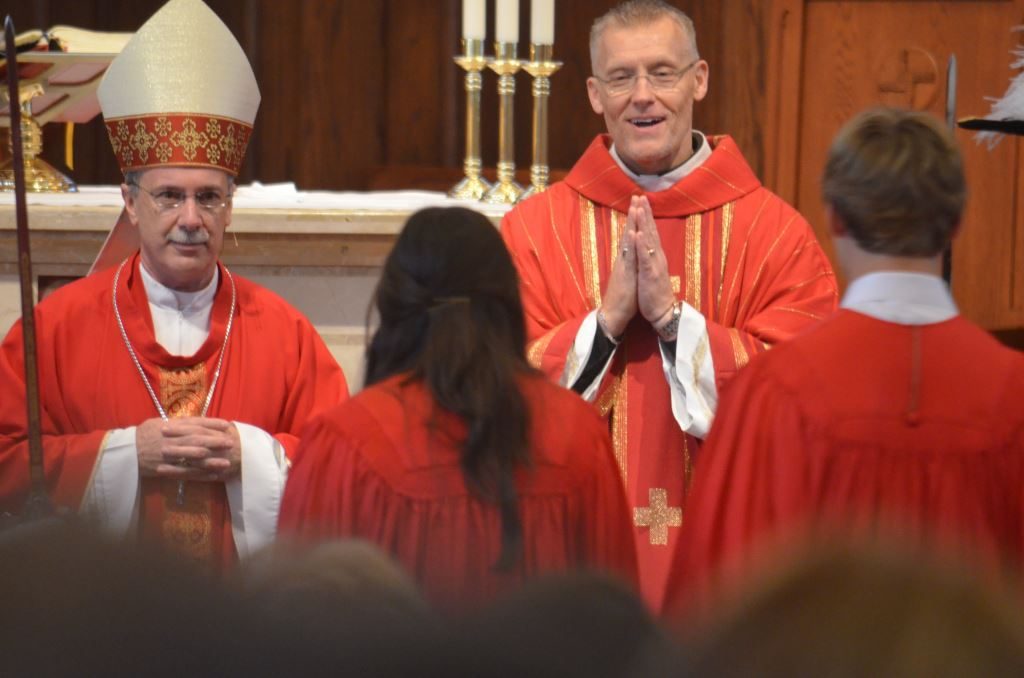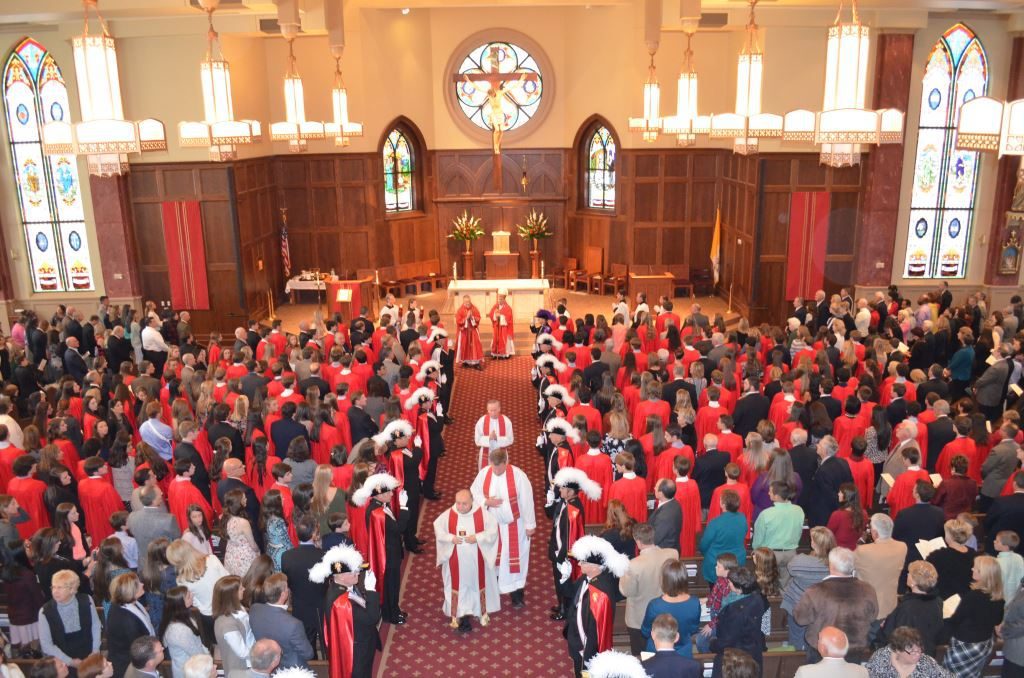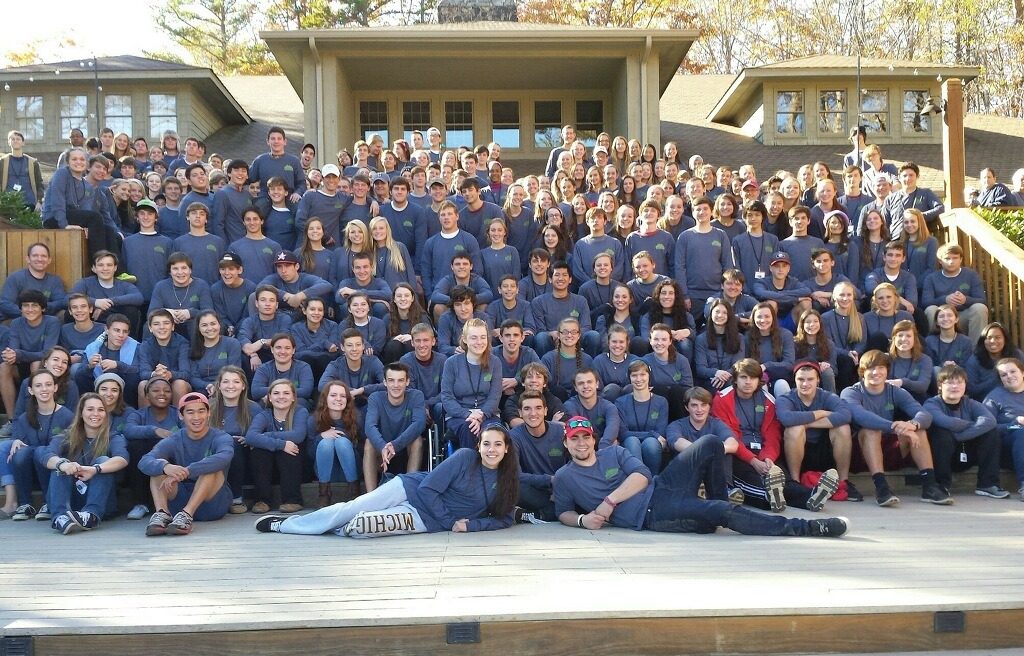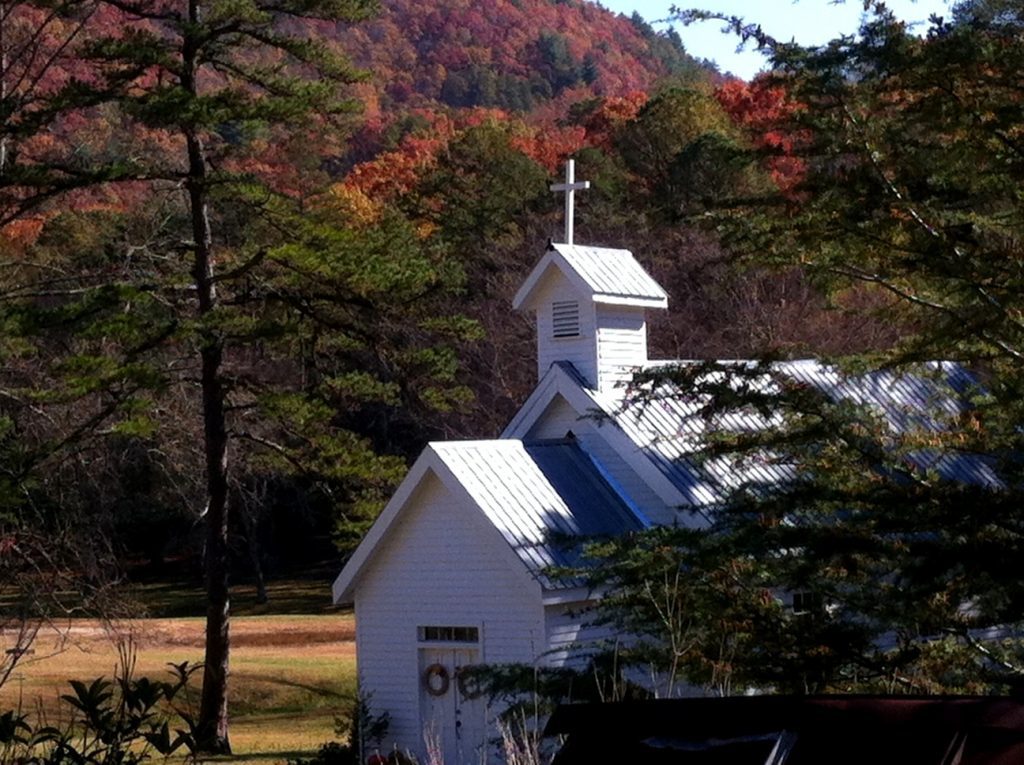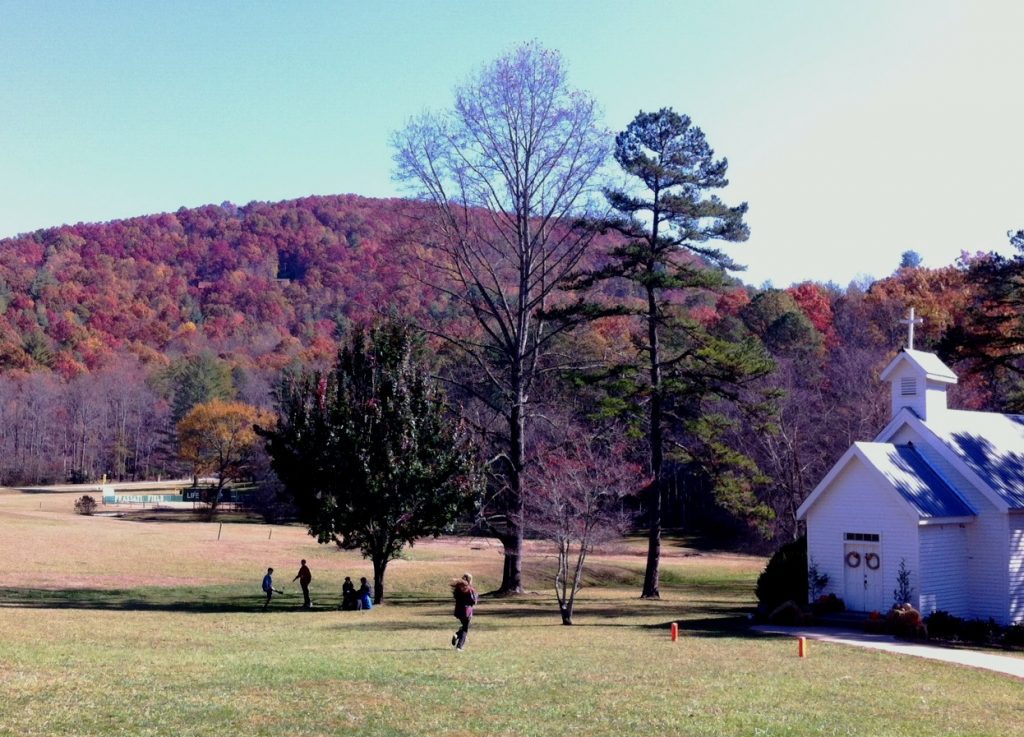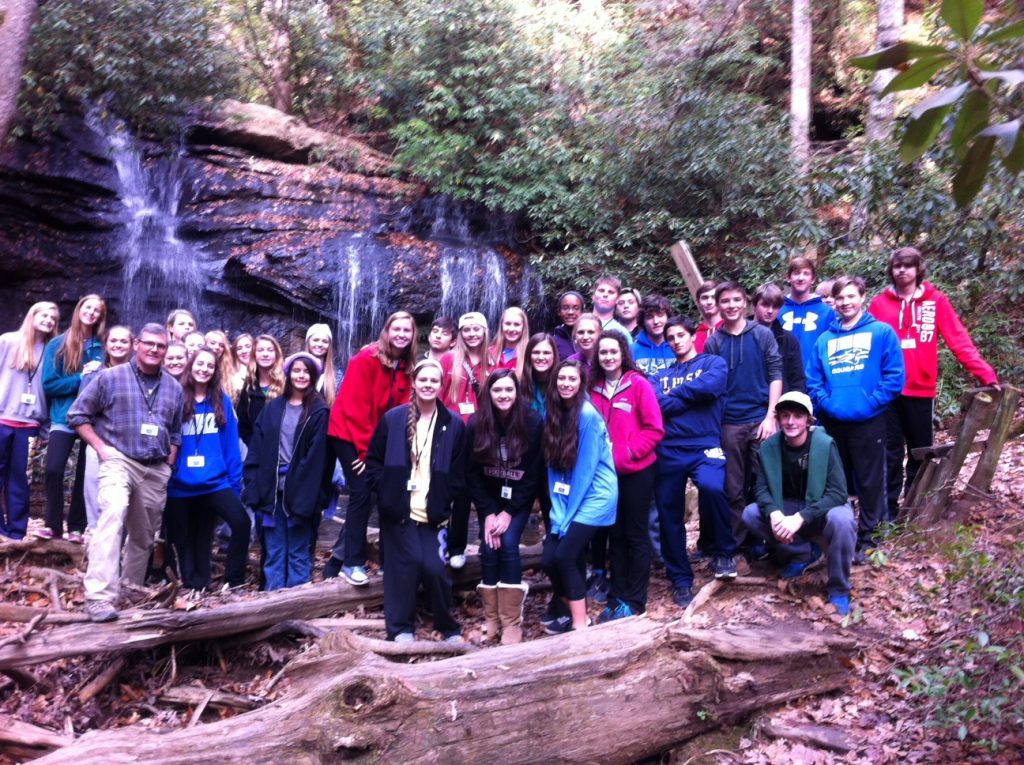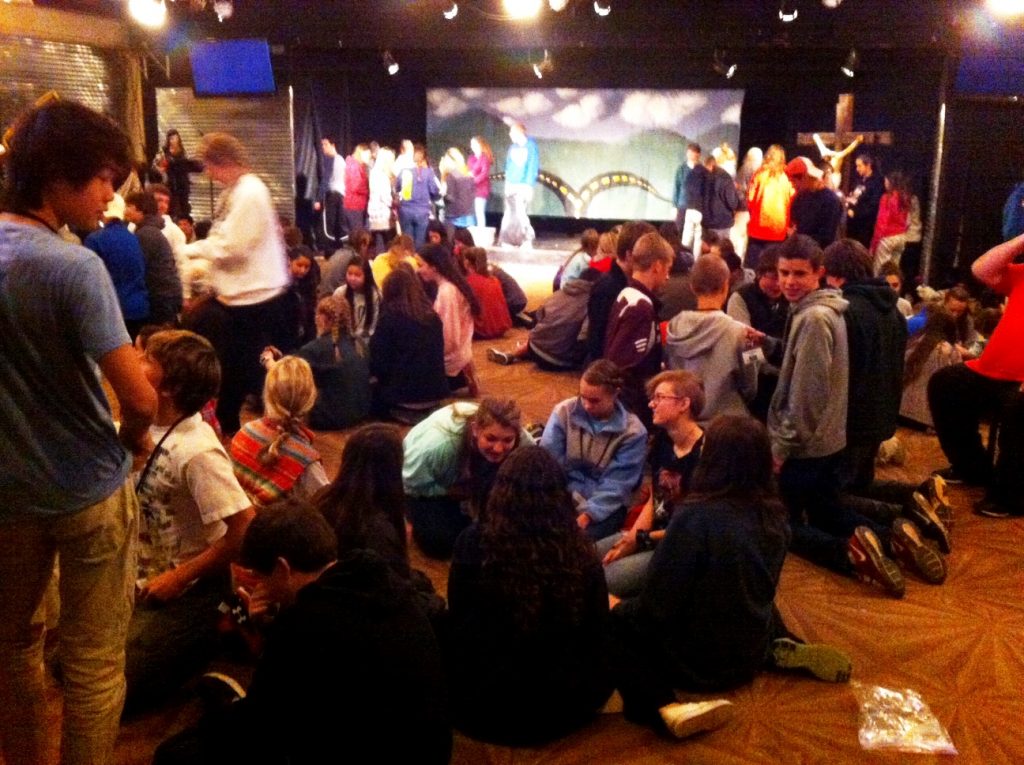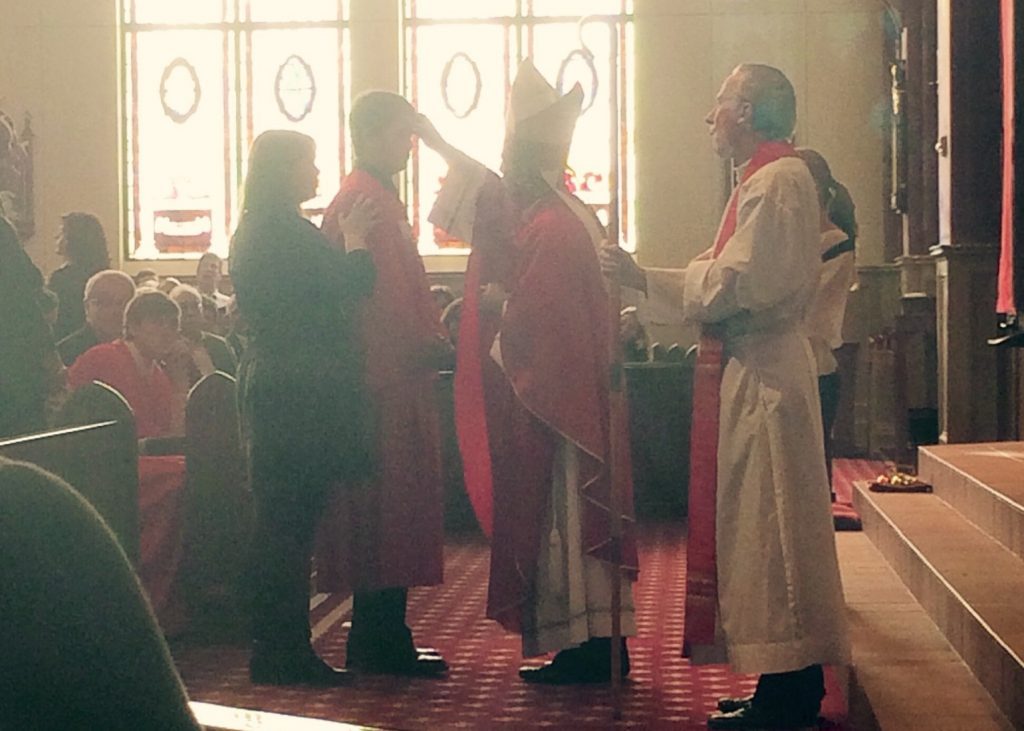Baptism
Becoming a Sponsor for OCIA Candidates
(OCIA is the program for Adults becoming Catholic)
Interested in becoming a Sponsor, but unsure if you ‘know’ enough? Don’t worry, you do not need to be a theologian to be a sponsor. You just need to have the heart to accompany someone on his or her journey into the Catholic Church. You will attend class each week, which takes place on Sundays from 10:30-11:45 AM in Corbett Hall. In addition, there will be a few classes that take place on other days. You will receive the full schedule at the orientation. There are also specific requirements that need to be met in order to be a sponsor and they are as follows.
Sponsor Requirements at Saint Brigid
- 16 years of age or older, and
- is fully initiated into the Catholic Church (i.e., received Baptism, Confirmation, and Holy Communion), and
- is not the father, mother, spouse, fiancé, or boy/girlfriend of the person being sponsored, and
- sincerely believes and strives to put into practice the Word of God as taught by the Catholic Church, and
- regularly takes part in the Mass on Sundays and Holy Days of Obligation, and
- if married, is married in accordance with the requirements of the Catholic Church.
If you have any questions, please contact Deacon Leo Gahafer to find out more information about being an OCIA sponsor.
Important Docs
Baptism & Confirmation Sponsor FormChildren’s Sacraments (Ages 7-17)
How Does my Child Become Catholic?
Registrations (2026-2027) are being accepted through September 30, 2026
This is a process for youth by which one is received into the Catholic Church (non-Catholics) or completes the sacraments of initiation (Catholics) through faith development focusing on prayer, sacraments, and the teachings of the Catholic Church.
Who should participate in the Order of Christian Initiation for Children?
- Those who want to become Catholic, are seven to seventeen years old, and
- have never been baptized, or
- are baptized, but not in the Catholic Church
- Those who were baptized Catholic, are in 3rd to 12th grade, are seventeen years old or younger, and
- never received first Communion and Confirmation
Please contact Dr. Mimi Gamel to find out more information about OCIC.
Dr. Mimi Gamel
Inquiry (Ages 18+)
How Do I Find Out More about the Catholic Church?
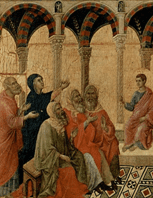 Are you interested in finding out more about the Catholic Church? The Inquiry process will help you to receive insights into the Catholic faith by discovering the truth, beauty, and goodness in the Church. As you investigate her founding by Christ, and the lives and teachings of the earliest Christians, you will see our Lord’s unfailing love throughout the centuries for his bride, the Church.
Are you interested in finding out more about the Catholic Church? The Inquiry process will help you to receive insights into the Catholic faith by discovering the truth, beauty, and goodness in the Church. As you investigate her founding by Christ, and the lives and teachings of the earliest Christians, you will see our Lord’s unfailing love throughout the centuries for his bride, the Church.
Inquiry is for those 18 and older who have not been baptized, were baptized in a non-Catholic Church or community, or were baptized Catholic, but have not yet received first Holy Communion and/or Confirmation.
The purpose of Inquiry is to allow you the opportunity to ask questions. Our goal is to provide what the Church teaches about those questions to allow you to make an informed decision about moving forward in receiving the sacraments.
Come learn about the Inquiry process at Saint Brigid, where you can ask the questions that you need answered and learn more about the Church that Christ built.
If you are interested in finding out more about becoming Catholic, please contact Todd Coury for more information.
Baptism (Ages 0-6)
Baptisms at Saint Brigid
Parish Registration: Parents of the child to be baptized should be registered members of Saint Brigid Church. If you are not yet registered, please register at the Parish Office or complete the online registration form on the Saint Brigid website.
If you belong to another parish, but wish to have the baptism at Saint Brigid for family reasons, we can help you with that. You will need a letter of permission from your pastor.
Baptism Classes
Parents are required to attend a Baptism Class before the baptism. The class is scheduled once a month on a Sunday: 3:15-4:30 pm in the chapel.
Baptism Class Dates for 2026:
Jan 18 * Feb 15 * March 15 * April 19 * May 17 * June 14
July 19 * Aug 16 * Sept 20 * Oct 18 * Nov 15 * Dec 20
- To Sign Up for Class: Email baptisms@saintbrigid.org to reserve your space in a class. Include the names of all who will be attending and the date of the class you wish to attend.
- You may attend a baptism preparation class at another parish if necessary, then provide a letter or verification of attendance from that parish indicating the class date.
- Parents are asked to attend a class for each child, not just their oldest child. (If you attended a class in the past 24 months let us know. You can receive credit for that one)
Scheduling a Baptism
Baptisms at Saint Brigid are private family baptisms, scheduled in the Adoration Chapel at the following times:
- Saturdays: 10:30 & 11:30 am, 12:30, 1:30, 2:30 & 3:30 pm
- Sunday afternoons: 2:30 pm & 3:30 pm
We recommend that you check with invited friends and family members about their availability before selecting a specific date. Plan to arrive at the church 10 to 15 minutes before the scheduled time.
Children receiving the Sacrament of Baptism should be dressed in a white gown or outfit. The Parish will provide the Baptismal Candle and a Baptismal Bib as a symbolic gift from the Parish.
A Certificate of Baptism will be provided at the baptism or mailed to shortly afterward. Please keep this certificate in a safe place. It will be needed when registering for religious education or preparing for future sacraments.
Information about Sponsors (commonly called Godparents)
At baptism, the sponsor (or Godparent) begins a life-long relationship with their godchild by praying for and supporting their godchild in faith, as well as providing an example of the Catholic faith in action. Hopefully the Godparent and Godchild will develop a close personal bond as well.
You may choose one or two sponsors for your child. Only one is necessary. At least one sponsor must be an active, practicing Catholic (see qualifications below). The other Godparent may be a Christian of another denomination
Sponsor Guidelines and Qualifications
(from Canon 872-874 of the Catholic Church – The Catholic sponsor must meet all listed qualifications)
- A sponsor must be at least 16 years of age.
- A sponsor must have received the Sacraments of Baptism, Confirmation, and Holy Eucharist.
- A sponsor must be a practicing Catholic, registered in a parish and regularly attending Mass
- A sponsor must be leading a life in harmony with the faith and the role to be undertaken; therefore, if married, must be married in the Church.
You may have two sponsors, but only one is required for baptism. If there are two sponsors, they must be a man and a woman (a Godmother and Godfather).
If the sponsor is not able to attend the baptism, he/she may be represented by a proxy.
Sponsor Certificate A Catholic sponsor will need to complete a sponsor certificate and have it signed by their pastor at their home parish. A blank sponsor certificate is attached to this email, or they may use whatever form is used at their home parish. At least one sponsor must be Catholic and provide the signed certificate.
Christian Witness A Christian who is not Catholic cannot officially be a Catholic sponsor, but if they are living their Christian faith they can stand with the Catholic sponsor as a “Christian Witness” to the baptism. In this case there would be one Catholic sponsor and one Christian Witness at the baptism. (both would be considered Godparents) A Christian Witness does not need to provide a signed sponsor certificate.
Visiting Clergy
If you wish to ask a Priest or Deacon from another parish to officiate at the baptism, please contact your clergy first to confirm his willingness and availability. Then either you or the clergy should contact baptisms@saintbrigid.org to schedule the baptism.
Contact our Baptism Coordinator, Kathy Hogan at baptisms@saintbrigid.org for more information and to request your child’s baptism.
We look forward to helping you plan your child’s baptism!
Duplicate Baptism Certificates
Duplicate certificates are provided upon request. Please allow 10-14 days for the certificate to be prepared and signed by the pastor.
To request a certificate, send the following information to Kathy Hogan at baptisms@saintbrigid.org
- Full Name of Baptized Person
- Their date of birth and city of birth
- Date of baptism (approximate is fine)
- Father’s Full Name
- Mother’s Full Name (include maiden name)
- Your email address (a scanned copy will be emailed to you)
- Mailing address for the hard copy (the hard copy will be mailed to the address you provide)
Questions? Email Kathy Hogan at baptisms@saintbrigid.org.
Kathy Hogan
Important Docs
Sponsor FormYouth Education & Formation
Sacraments for Adults
How Do I Become Catholic?
Registrations (2026-2027) are being accepted through September 30, 2026
Each year on Holy Saturday during the Easter Vigil, thousands are baptized into the Catholic Church in the United States. Parishes welcome these new Catholics through the Order of Christian Initiation of Adults.
The OCIA process is for people who are interested in the Roman Catholic faith and who would like question and/or pursue learning about our religion and join our community of believers.
Maybe you are looking to be Baptized Catholic. Perhaps you are married to a Catholic and wish to find out more about your spouse’s faith. Perhaps you are already a Catholic and never received your First Eucharist and Confirmation. Or perhaps you are baptized in another Christian faith but have thought about becoming a Catholic. The Order of Christian Initiation Journey in Faith is for all of you!
Catechumens (those who wish to be baptized in the Catholic faith and become full members) and Candidates (those wishing to complete their initiation in the Catholic Church by receiving the sacraments of Eucharist and Confirmation) are guided by catechists, sponsors, and parish staff who welcome them and accompany them on their faith journey.
Becoming a Catholic is not just a matter of learning and accepting several beliefs. It is a process of growth and conversation, as well as growing into a particular Catholic community or parish.
You will need a sponsor who will pray for and support you on your journey. The sponsor is meant to be a fellow pilgrim on the journey and must be a Catholic. The sponsor may be a spouse or friend. However, if the inquirer does know anyone suitable, the parish will be happy to suggest someone.
Ordinary parishioners can join this journey of faith, and many find the sessions helpful in developing their knowledge of their Catholic faith and their understanding of its traditions. As you learn, you may even become a “parish sponsor” for those seeking to join the Church.
Who should participate in OCIA?
- Those adults (18+) who want to become Catholic and have never been baptized, or
- are baptized, but not in the Catholic Church
- Those adults (18+) who were baptized in the Catholic Church and
- never received First Communion and Confirmation, or
- never received Confirmation
Contact Deacon Leo Gahafer with any questions.
Rev. Mr. Leo Gahafer
Deacon - Pastoral Associate
& Order of Christian Initiation Adults
Important Docs
2026-2027 OCIA Inquiry FormReconciliation
Reconciliation Schedule
First Holy Communion
Older Children – First Communion
Did your child miss their First Holy Communion?
If you have a child OVER the age of 7, is baptized Catholic or in the Christian faith, who have not yet received their First Holy Communion, this sacrament can be received through the Order of Christian for Children.
Order of Christian Initiation for Children (OCIC):
-
- The OCIC program is designed for children who are baptized Catholics or belong to the Christian faith and have not yet received their First Holy Communion.
- It teaches the basics of the Catholic faith and prepares children for the sacraments of Baptism (if needed), First Reconciliation, First Holy Communion, and Confirmation.
- The program follows liturgical Rites and guides both children and their families through the process.
- Classes typically run on Sundays during the academic year, with Mass attendance at 9:00 am and class from 10:20 am to 12:20 pm.
- The Sacrament of First Holy Communion is celebrated at the Easter Vigil.
Order of Christian Initiation for Children with Special Needs:
- There are special formation programs available for children older than 7 years old for those with special needs.
These programs ensure that every child has the opportunity to receive the sacraments and grow in their faith.
Dr. Mimi Gamel
Important Docs
OCIC Registration FormConfirmation
Youth Confirmation
Registration for Confirmation 2026 opens Dec 1, 2025 to Jan 25, 2026
Confirmation Registration Form 2026
2026 Confirmation Calendar
*NOTE: Attendance is REQUIRED at all classes and events listed on the 2026 Confirmation Calendar in order to receive Confirmation. Add these dates to your family calendar now and take care to avoid future conflicts.
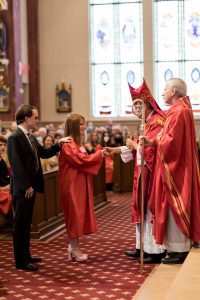
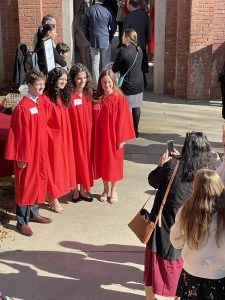 Currently, the Archdiocese of Atlanta celebrates the Sacrament of Confirmation in 10th grade. Preparation at St. Brigid typically begins in the spring semester of 9th grade, but older high school students are welcome to join the program. Registration for Confirmation 2026 will open in December 2025.
Currently, the Archdiocese of Atlanta celebrates the Sacrament of Confirmation in 10th grade. Preparation at St. Brigid typically begins in the spring semester of 9th grade, but older high school students are welcome to join the program. Registration for Confirmation 2026 will open in December 2025.
To Register…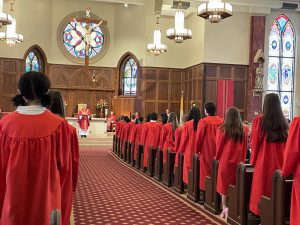
-
- Fill out the Confirmation Registration Form
- Email the form to Confirmation@saintbrigid.org (Hard copies can be turned in to the parish office)
- Print the 2026 Confirmation Calendar and secure these dates on your family’s calendar.
- Pay the $150 Program Fee, either by check to “Saint Brigid” or click the green button to pay online (find the “Confirmation” box):
 Prerequisites for Confirmation
Prerequisites for Confirmation
- Already have received the Sacraments of Baptism and First Communion
- Be a registered member of Saint Brigid (or receive special permission from your parish)
- Attend Sunday Mass weekly
- Complete the 2-year religious education requirement for 7th/8th grade. This requirement is fulfilled by:
- attending Catholic school -or-
- attending the EDGE middle school program -or-
- completing the EDGE independent program (if you did not attend EDGE in middle school, we will provide this independent work to complete within the first few weeks of Confirmation)
The Confirmation Timeline
- Registration: Register for Confirmation preparation in Dec/Jan of 9th grade
- Parent/Teen Sessions: Attend all 5 Parent/Teen Sessions, monthly, Jan through May
- Summer “Confirmation Camp”: 4-day program at Saint Brigid.
- Fall Events: Parent/Teen Session-August and Sponsor/Candidate Program in Sept
- Overnight Retreat: October 24-25, 2026 (a different Catholic retreat may be substituted w/approval)
- Sacrament of Confirmation: November 21, 2026 (A-K at 10:00am / L-Z at 2:00pm)
FAQ: Do Catholic High School students need to attend Confirmation classes? Yes. The Archdiocese of Atlanta gives responsibility for sacramental preparation to the parish, so Catholic schools do not specifically prepare their students for Confirmation. The program offered at Saint Brigid is designed for all students. Confirmation classes and events are required for all students, regardless of the public or private high school they currently attend.
FAQ: What about Lifeteen? The Life Teen program is not a required part of the Confirmation program, but it’s fun all teens are encouraged to try it!
Older Students? Confirmation is typically received in 10th grade, but any teen up to the age of 17 can participate in this program and receive Confirmation. Current 10th and 11th-grade students are welcome to register!
We look forward to working with you as together we prepare your teen for Confirmation!
Marissa Borah, Kathy Hogan, Cindy Soder
Youth Confirmation Videos
Saint Brigid 2020 Confirmation Mass Program
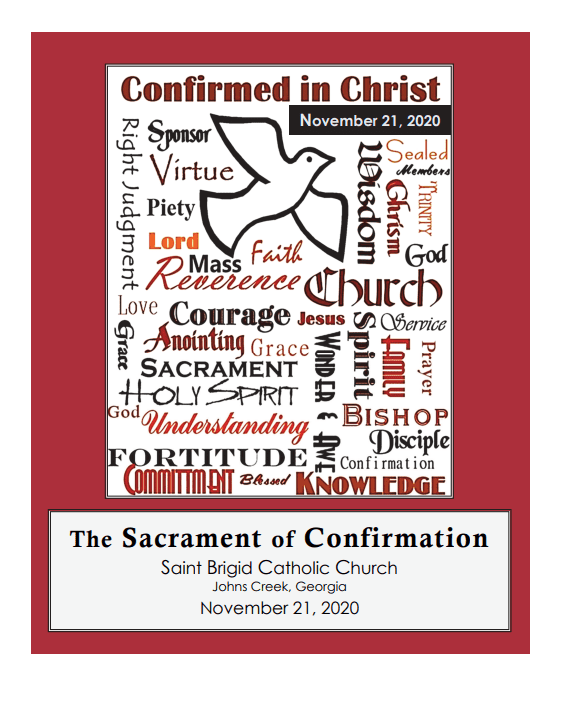
Celebrant Auxiliary Bishop – Most Reverend Bernard E. Shlesinger III
Concelebrants, Fr. Neil Herlihy, Pastor and Fr. Michael Bremer
Confirmation Mass, November 21, 2020, 10:00 AM
Confirmation Mass, November 21, 2020, 12:00 PM
Confirmation Mass, November 21, 2020, 2:00 PM
Youth Confirmation Program and Calendar
Holy Orders
Anointing of the Sick
Sacrament of Healing
For many today, there is still a fear or stigma about calling the priest for the anointing of the sick – or for older Catholics we remember, “Extreme Unction”. Since Vatican II, much has changed in the teaching and attitude in regard to this sacrament. It is not necessary or recommended by the Church that we wait until someone is dying to call a priest; in fact, if you are preparing for surgery or feel the need for healing – spiritually or psychologically – the Church teaches that this sacrament brings spiritual aid and comfort, including the forgiveness of sins to Christians who are seriously ill.
Individual and Communal
“Anointing of the Sick” can be performed on an individual basis according to the individual person’s needs, or it can be offered on a communal basis. Saint Brigid also offers a communal anointing of the sick on the third Sunday of every month after the 1:00 PM Mass in the Church.
There is a change in July. It will be offered on Sunday, July 27th. (4th Sunday – temporary change)
In a communal anointing, the priest calls for anyone who believes that they would benefit from the reception of the sacrament to come forward, and those who come forward then receive the sacrament.
In the event of a Sacramental emergency, please call the parish office. (after hours please follow the voice mail instructions, it will connect you to the answering service).
Requesting a Home or Hospital / Hospice Visit 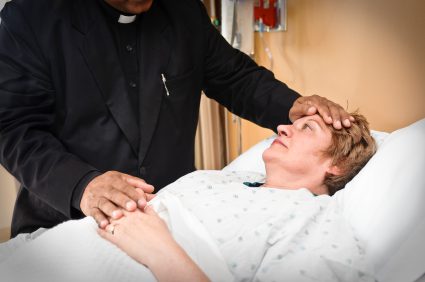
- Please, leave the name and phone # of the Sick OR name and phone # of the caller and their relationship to the Sick. (family member, friend, chaplain)
- Is the caller or the Sick a parishioner of Saint Brigid?
- Has the Sick person requested the visit? If not- does the Sick approve of this request?
- Location of the Sick (address, room number, any restricted hours?…)
- Purpose of the visit (Anointing, Communion, Confession, consultation?)
In the Church’s Sacrament of Anointing of the Sick, through the ministry of the priest, it is Jesus who touches the sick to heal them from sin – and sometimes even from physical ailment. His cures were signs of the arrival of the Kingdom of God. The core message of his healing tells us of his plan to conquer sin and death by his dying and rising.
The Rite of Anointing tells us there is no need to wait until a person is at the point of death to receive the Sacrament. A careful judgment about the serious nature of the illness is sufficient.
When the Sacrament of Anointing of the Sick is given, the hoped-for effect is that, if it be God’s will, the person be physically healed of illness. But even if there is no physical healing, the primary effect of the Sacrament is a spiritual healing by which the sick person receives the Holy Spirit’s gift of peace and courage to deal with the difficulties that accompany serious illness or the frailty of old age.
~from the United States Catholic Catechism for Adults
Sacrament of Anointing provides a special grace
- The uniting of the sick person to the passion of Christ, for his own good and that of the whole Church.
- The strengthening, peace, and courage to endure in a Christian manner the sufferings of illness or old age
- The forgiveness of sins, if the sick person was not able to obtain it through the sacrament of Penance
- The restoration of health, if it is conducive to the salvation of his soul
- The preparation for passing over to eternal life
Catechism of Catholic Church 1532
The special graces offered in the Sacrament of Anointing (oursundayvisitor.com)
Marriage
Your wedding day is one of the most memorable of your life. At Saint Brigid, we assist you in planning your wedding and in preparing you for your life-long marriage as well.
Please contact weddings@saintbrigid.org with your questions about date availability and the steps necessary to reserve your wedding date. See the link in the box below for the Saint Brigid Wedding Booklet of policies and procedures.
If you have already confirmed a wedding date at Saint Brigid, contact your assigned wedding director with any questions.
Frequently Asked Questions About Marriage
Must the Bride and Groom both be Catholic to marry at Saint Brigid?
No. The Catholic Church welcomes interfaith marriages between Catholics and non-Catholics. During marriage preparation, the Catholic party will be asked to promise to maintain his or her own faith and also do all in his or her power to ensure that children born of the union are raised in the Catholic faith. The non-Catholic party does not make any promises but is aware of the promise by the Catholic party. A member of our clergy can offer more details about this.
Do I need to be registered parishioner at Saint Brigid to have my wedding there?
No, you do not need to be registered at Saint Brigid. However, we do urge you to register at Saint Brigid or another parish near you. so that you may practice your faith as an engaged/married couple.
When are weddings scheduled?
Weddings are scheduled on Saturdays, only at 11:00 AM, 2:00 PM and 7:00 PM. These times may not be changed.
What is the fee for use of the church and facilities?
The standard fee covers the use of the sanctuary or chapel, the musician (organist) and the wedding director, as well as marriage preparation materials. A discounted fee is available to Saint Brigid parishioners who have been registered and active in the parish for at least six months before scheduling their wedding.
Main Church – $1,800 or Chapel – $1,200
What is the seating capacity?
The main sanctuary seats approximately 800 people. The seating capacity of the Chapel is 80 people. (including the wedding party)
Who is able to officiate our wedding at Saint Brigid?
Only Catholic weddings are celebrated at Saint Brigid, so any Roman Catholic priest or deacon, ordained and in good standing, may officiate with permission from our Pastor.
Can Ministers from another denomination participate in weddings at Saint Brigid?
Yes, ministers from other denominations are welcome to participate in certain aspects of the ceremony. Please consult with your Catholic clergy for more information.
How far in advance may I schedule my wedding?
A wedding may be scheduled up to 12 months in advance of your proposed date, especially for certain times of the year. Generally, a minimum of six months before your anticipated date is necessary to complete marriage preparation requirements. All weddings are scheduled on a first-come basis.
What if one of us has been married before?
Church law requires that each party be free to marry. If either party has been married before, and the previous marriage spouse is still living, an annulment of the previous marriage is required. It is a common misconception that a divorced person who “was not married in the Church” (ie…civil or non-catholic church) would not need an annulment decree. Even in these cases, however, a form of annulment is still required. A wedding date cannot be scheduled until the annulment has been granted and both parties are free to marry.
Is there a marriage preparation requirement?
Yes, Marriage preparation typically includes participation in the Saint Brigid Sponsor Couple Program and 3 to 4 meetings with Clergy. Other marriage preparation options may be available depending on your situation.




